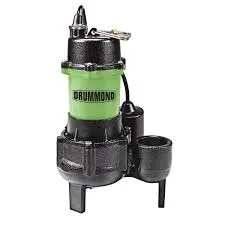Slovenian
- Afrikaans
- Albanian
- Amharic
- Arabic
- Armenian
- Azerbaijani
- Basque
- Belarusian
- Bengali
- Bosnian
- Bulgarian
- Catalan
- Cebuano
- Corsican
- Croatian
- Czech
- Danish
- Dutch
- English
- Esperanto
- Estonian
- Finnish
- French
- Frisian
- Galician
- Georgian
- German
- Greek
- Gujarati
- Haitian Creole
- hausa
- hawaiian
- Hebrew
- Hindi
- Miao
- Hungarian
- Icelandic
- igbo
- Indonesian
- irish
- Italian
- Japanese
- Javanese
- Kannada
- kazakh
- Khmer
- Rwandese
- Korean
- Kurdish
- Kyrgyz
- Lao
- Latin
- Latvian
- Lithuanian
- Luxembourgish
- Macedonian
- Malgashi
- Malay
- Malayalam
- Maltese
- Maori
- Marathi
- Mongolian
- Myanmar
- Nepali
- Norwegian
- Norwegian
- Occitan
- Pashto
- Persian
- Polish
- Portuguese
- Punjabi
- Romanian
- Russian
- Samoan
- Scottish Gaelic
- Serbian
- Sesotho
- Shona
- Sindhi
- Sinhala
- Slovak
- Slovenian
- Somali
- Spanish
- Sundanese
- Swahili
- Swedish
- Tagalog
- Tajik
- Tamil
- Tatar
- Telugu
- Thai
- Turkish
- Turkmen
- Ukrainian
- Urdu
- Uighur
- Uzbek
- Vietnamese
- Welsh
- Bantu
- Yiddish
- Yoruba
- Zulu
Telephone: +86 13120555503
Email: frank@cypump.com
Nov . 03, 2024 12:06 Back to list
slurry transfer pump efficient and reliable fluid handling ...
Efficient and Reliable Fluid Handling with Slurry Transfer Pumps
In various industries, particularly mining, construction, and wastewater treatment, the handling of slurries—mixtures of solids and liquids—presents significant challenges. Slurry transfer pumps play a critical role in ensuring efficient and reliable fluid handling, providing essential solutions for transporting thick, viscous materials.
Understanding Slurry Transfer Pumps
Slurry transfer pumps are specifically designed to handle a mixture of solid particles suspended in a liquid. These pumps differ from standard fluid pumps in that they must cope with the abrasive and viscous nature of slurries, which can cause excessive wear on pump components. As a result, they are built with robust materials and specialized designs. Common configurations include centrifugal and positive displacement pumps, each having its own advantages depending on the specific application.
Key Features of Effective Slurry Pumps
1. Durability and Material Selection The construction materials of slurry pumps need to be resistant to wear and corrosion. High-chrome alloys and rubber linings are popular choices that enhance the longevity of the pump. These materials ensure that the pump can withstand the harsh conditions often associated with slurry applications.
2. Efficient Design An effective slurry pump should minimize energy consumption while maximizing flow rates. Innovations in pump design, such as enhanced impeller shapes and optimized hydraulic efficiency, are crucial for reducing operational costs and improving performance.
slurry transfer pump efficient and reliable fluid handling ...

3. Versatility Slurry pumps should be versatile enough to manage a wide range of slurry types, whether they are highly viscous or contain a substantial solid content. This adaptability makes them indispensable across different industries.
4. Maintenance Ease Regular maintenance is pivotal to ensuring a long service life for slurry transfer pumps. User-friendly designs that allow for quick access to wear components can reduce downtime and lower maintenance costs.
Applications Across Industries
Slurry transfer pumps find applications in various sectors. In mining, they are used for transporting ore slurries and tailings. In construction, they assist in the management of wet concrete mixtures and soil transport. Wastewater treatment facilities utilize specifically designed slurry pumps for managing sludge and other sediment-laden liquids.
Conclusion
In conclusion, slurry transfer pumps are essential for efficient and reliable fluid handling in industries where the movement of slurries is necessary. Their robust design, coupled with advancements in pump technology, ensures that they can effectively handle challenging materials while minimizing wear and maximizing performance. By investing in high-quality slurry transfer pumps, industries can not only improve their operational efficiency but also safeguard against the potential challenges posed by transporting slurries. As technology continues to evolve, the future of slurry handling promises to become even more efficient and reliable, paving the way for enhanced productivity across various sectors.
-
Heavy-Duty Mining Sludge Pumps - Wear-Resistant Slurry Handling
NewsAug.02,2025
-
Horizontal Split Case Pump with GPT-4 Turbo | High Efficiency
NewsAug.01,2025
-
ISG Series Pipeline Pump - Chi Yuan Pumps | High Efficiency, Durable Design
NewsAug.01,2025
-
Advanced Flue Gas Desulfurization Pump with GPT-4 Turbo | Durable & Efficient
NewsJul.31,2025
-
ISG Series Vertical Pipeline Pump - Chi Yuan Pumps | Advanced Hydraulic Design&Durable Construction
NewsJul.31,2025
-
ISG Series Vertical Pipeline Pump - Chi Yuan Pumps | Energy Efficient & Low Noise
NewsJul.31,2025










